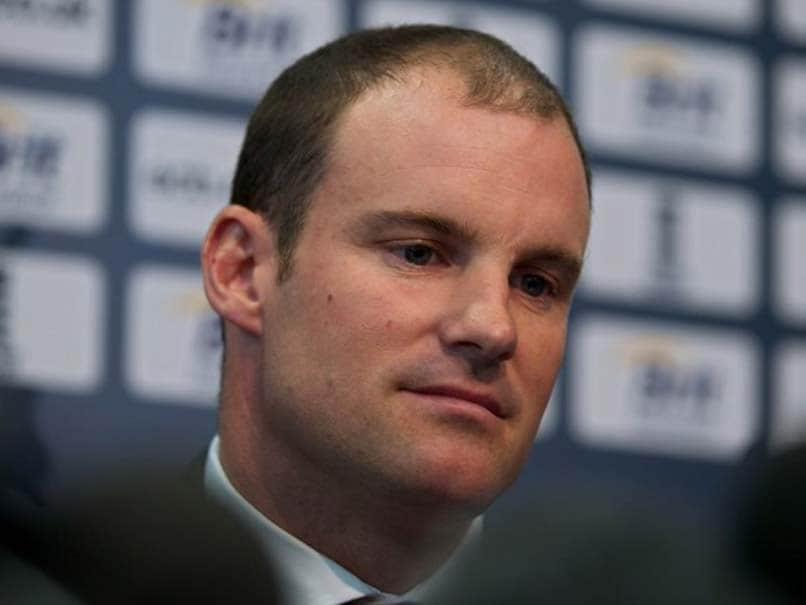- Languages
- हिंदी | Hindi
Personal Information
| Full Name | Andrew John Strauss |
| Born | March 2, 1977 Johannesburg, Transvaal, South Africa |
| Age | 48 Years, 11 Months, 29 Days |
| National Side | England |
| Batting Style | Left Handed |
| Bowling | Left-arm medium |
| Sport | Cricket |

Ranking
| Test | ODI | T20 | |
|---|---|---|---|
| Batting | - | - | - |
| Bowling | - | - | - |

Man of the Match
| Test | ODI | T20 | World Cup | CL |
|---|---|---|---|---|
| 2 | 7 | 0 | 1 | - |

Career Information
| Teams Played | England, British Universities Students Association, England A, England XI, MCC, Northern Districts, Middlesex, Somerset |
| Career Span |
Andrew John Strauss Overall Stats
 Batting & Fielding Performance
Batting & Fielding Performance

 Bowling Performance
Bowling Performance

|
|
I | O | M | R | W | Best | 3s | 5s | AVG | E/R | S/R | Mtc |
|---|---|---|---|---|---|---|---|---|---|---|---|---|
|
ODI
|
1 | 1 | 0 | 3 | 0 | 0/3 v ZIM | 0 | 0 | - | 3.00 | - |
Andrew John Strauss Profile
In 2004, when South Africa-born, left-handed, Middlesex captain and now 'Sir' Andrew Strauss took centre-stage alongside Marcus Trescothick on the infamous Lord’s turf, few envisaged him to form one half of Test cricket’s best opening pair of the time. The opposition was New Zealand, and the Kiwis were left confounded by his century-on-debut that ensued.
Strauss was born in Johannesburg, South Africa, but moved up north to the European Continent when he was just 6 years old. He joined the Middlesex Domestic Team in 1996 and made his first-class debut in 1998, scoring 83 runs. His start in the Domestic circuit was not extravagant, with batting averages of 24 and 30.5 in his first 2 seasons. He finally made his maiden first-class ton two years after his debut. However, after that his stocks sky-rocketed and so did his run-getting abilities, with runs flowing quickly. Strauss was appointed as the captain of Middlesex in 2002 and held the post until 2004.
By 2005, Strauss, with partner Trescothick, became England’s crown jewel in reclaiming the Ashes after a gap that spanned two decades. Despite being his maiden encounter against Shane Warne and Glenn McGrath, his gritty batting peppered with tentative stroke-play notched two centuries over five Tests. Eventual comparisons to Justin Langer seemed inevitable. In 2006, Strauss was made interim ODI captain against Sri Lanka, following injuries to Michael Vaughan and Andrew Flintoff. That maiden foray into authority saw England suffer a series whitewash. Prolonged trust in Strauss was soon rewarded with a Test series victory against Pakistan before captaincy returned to Flintoff. But the year saw a steady decline in his form, reflecting in England's 5-0 Ashes whitewash.
The lowest ebb resulted in an omission following below-par performances against the Windies and on tour to India. Before the final innings of a forgettable 3-Test series in New Zealand, Strauss’ fate was pretty much sealed. But a timely 177 at Napier not just bought him time, but also paved way for a revival. The years that followed saw Strauss recapture both form and captaincy - this time England looking to him to reunite a divided dressing room. In Alastair Cook, he found an opening partner to match the retired Trescothick. His leadership was instrumental in England retaining the 2009 Ashes and the 2010-11 Ashes proved even more special, as it was the first English victory on Australian soil after 24 long years.
The impact of Strauss’ inspirational captaincy was largely evident when England were crowned World No.1 in the ICC Test Rankings in 2011. Under his tutelage, the English team humiliated the then World Champions India, beating them 4-0 to acquire the mace. However, their reign couldn’t last for more than a year as a determined South Africa dethroned England from the pinnacle of Test cricket in 2012. Strauss then stepped down from captaincy, after playing his 100th Test at the Home of Cricket, his 50th as the England skipper. Not only did he resign from the post, but also announced his retirement from all forms of the game, paving way for his opening partner Alastair Cook to fill a huge void in the team.
Strauss' contribution to England cricket did not stop there though. He was appointed to the newly created role of director of England cricket in May 2015, and his first act was to sack the incumbent coach, Peter Moores. Strauss also oversaw the appointment of Trevor Bayliss as the new coach and encouraged that greater emphasis is given to limited-overs cricket. That initial approach bore fruit in 2019 as England won the ICC 50-over World Cup. In September 2019, his contributions to England Cricket were recognised as he was given knighthood.










